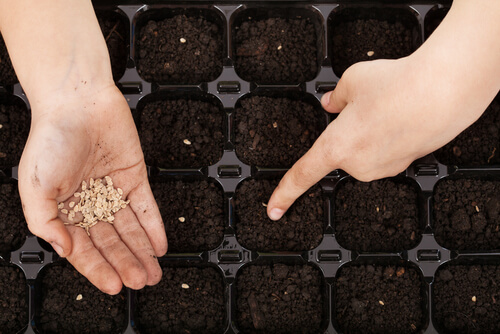
If you love to grill outside during the warm summer months, growing eggplant is simply a must. This wonderful vegetable can take your outdoor grilling from good to excellent.
Eggplants grow well and look wonderful in small containers. They can also be used as an ornamental border, do well in raised beds, and of course can be grown in your traditional garden. There are several varieties of eggplant available.
The small-fruited types will typically be a heavy bearer of fruit. You can expect to pick more than a dozen from each of the plants during the summer months in a warmer climate. The larger varieties will have more traditional sized fruits, which are just as impressive. If you are planning a garden this spring or summer, growing eggplant is a must.
Here are some tips and tricks for growing eggplant in your garden.
1. Starting from Seed
If you are planning to grow your eggplants from seed, it is a good idea to start your seeds indoors. You should plant your seeds about eight to ten weeks before the last expected frost in your area.
The seeds will need to be placed in growing pods and kept under lights for several hours each day. The lights will help the seeds start to sprout more quickly. In addition, using bottom heat on the tray of eggplant seeds can help speed up the germination process.
A seedling heat mat can be placed under each of the flats of eggplant seeds. The mat should be kept under the flat and then kept there until the plants start to produce their first true leaves.
Once the leaves have formed, remove the mat so that you prevent leggy growth. The seedlings should start to get leaves in just a few weeks from the time they are planted.